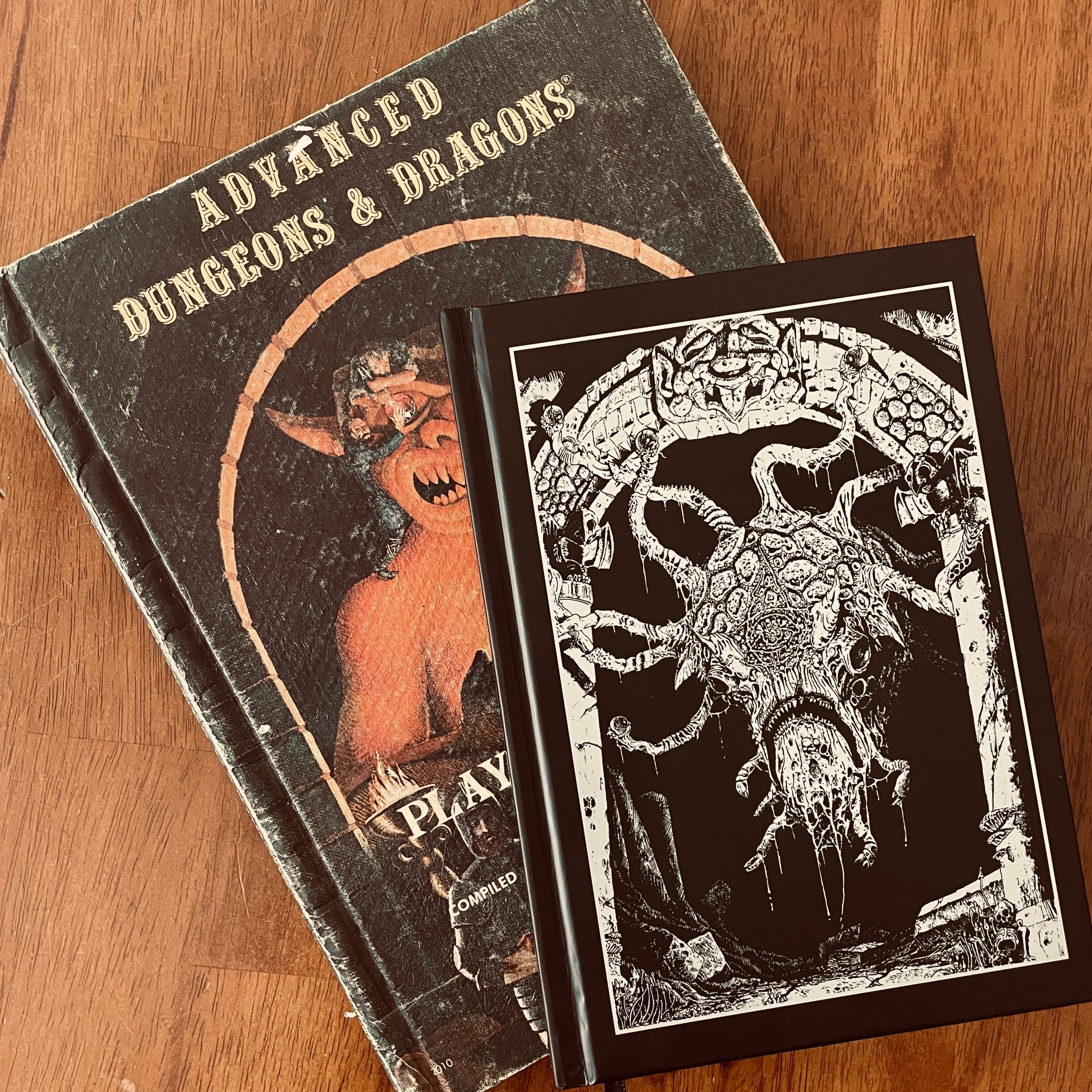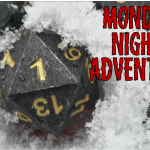
Do we need a Caller in Shadowdark like D&D in the old days?
If you’ve played tabletop RPGs for a while—especially old-school D&D—you might have heard of something called the “caller.” It’s a role that’s kind of faded out in most modern games… except, maybe not entirely.
While Dungeons & Dragons has moved on from formally using a caller, Shadowdark RPG is bringing the spirit of that role back in a pretty cool way.
The Old-School D&D Caller: Table Traffic Control
Back in the early days of D&D (we’re talking 1970s and early ’80s), games were often played with huge groups—sometimes eight or more players crowded around the table. This was especially the case at conventions. To keep things running smoothly, one player was chosen as the caller. (See: Advanced Dungeons & Dragons Player’s Handbook, p. 106 under “Organization”.)
Think of the caller like the party’s spokesperson. They’d tell the DM where the party was going, call out marching order, and generally lead the party’s tactical moves and decisions when acting as a group in a dungeon or subterranean delve.
It was a great way to cut down on everyone shouting different things at once. The caller ensured that the group moved as a unit—and that the DM didn’t go nuts trying to keep track of conflicting directions. In today’s games, inexperienced players sometimes focus more on their character sheets and what they want to do on their turn, with less attention to collaborating with the team. The caller can offer suggestions and help everyone act in unison.
By the time 2nd Edition rolled around, the role of the caller still existed, but it wasn’t mandatory. And by the time we hit 3rd and 4th Edition? Poof—it was practically gone.
In today’s 5e Dungeons & Dragons, there’s no mention of a caller in the rulebooks. Play is more democratic, with players discussing what to do and the DM acting more like a guide than a referee.
That doesn’t mean there’s no party leadership—someone might still naturally take charge during a negotiation or dungeon crawl—but it’s informal and sometimes in-character. No one’s assigned to speak for everyone else.
For most groups, that’s just fine. But sometimes, especially with large parties or tricky dungeon crawls, a bit of structure can still be useful.
Enter Shadowdark RPG: Old-School Feel, Modern Flow
Now here’s where things get interesting. Shadowdark RPG was inspired by old-school dungeon crawling and it places a premium on fast, gritty play—and the inestimable importance of light when exploring the darkness of caves, dungeons, or the darkest forest at night.
While Shadowdark doesn’t officially assign a caller, the game’s design encourages one naturally.
Here is why:
- You’re on a real-time clock (torches last 1 hour of real-world time). Speed is essential.
- Decisions need to be quick and clear
- Dungeons are dangerous, and lingering too long often means death
All of that pressure means someone usually steps up to keep the group moving. Whether it’s choosing which tunnel to take, keeping track of the torch timer, or making the final call on whether to fight or flee, there’s often an unofficial “leader” keeping the game on track.
Bloggers and critics love this about Shadowdark—many note how it revives the old-school “caller” role without forcing it. It’s efficient, it helps with pacing, and it adds a cool throwback vibe without being rigid.
An important distinction should be made about another concept in Shadowdark—often called “always on initiative” as it could confuse some GMs and players. On p. 83 of the core rules, under the section titled “Initiative”, it states: “Shadowdark RPG is played in turn order right from the start. At the beginning of the game, the GM establishes initiative, or the turn order in which the players act. Everyone rolls a d20 and adds their Dex modifier. (sic) The person who rolled the highest takes the first turn, and the turn order moves clockwise from that individual.” So, we assume that order will continue through the game session.
My fear is if players take this rotating turn method too literally, they might blurt out actions hastily without first exploring the best options quickly and working with their comrades. Keep it moving, sure, but take a second to voice your thoughts openly with the rest of your group before finalizing your actions with the GM. Communication and coordinated tactics are always keys to success in the darkness of the deepest dungeon as well as the open light of city streets.
Understand that this perpetual, pre-determined turn order can be a great way to save time on repetitive initiative rolls. It also ensures every player is heard and stays engaged, whether in dungeon combat, downtime, or carousing back in the city. However, it shouldn’t preclude the use of a caller to help keep turn order and initiative moving. His or her voice is not the final word on players’ actions, of course. Their role is only to expedite play and simple group actions that all agree upon. Players should always have a chance to make a remark or ask a question. Make sure all respect other player’s voices and time. GMs, ask your group at the beginning of the session if they will use a caller and explain the parameters or duties so everyone understands.
Final Thoughts: Is the Caller Making a Comeback?
While D&D has mostly left the idea of a caller behind, Shadowdark RPG shows that the concept still has legs—especially in games where time matters and danger is constant. However, don’t be so rigid about the caller that a domineering player potentially squashes others’ voices, decisions, or overall fun.
It’s less about “being in charge” and more about helping the group stay focused. Whether you’re navigating a pitch-black dungeon or trying to decide who opens the mysterious door, sometimes it’s just helpful to have someone say, “Alright, here’s what we do.”
So, if your game feels like it’s dragging, or if players keep getting stuck in decision loops, consider reviving the old-school idea of a caller—even just for one delve. Who knows? It might bring a little extra clarity to your next adventure.
XXX

You can follow me on YouTube: @EruditeDM, or on X: @EruditeDM. Feel free to email me at EruditeDM@gmail.com.
And please make sure that you sign up to our mailing lists for free articles and cool content ideas for games like Shadowdark RPG and other OSR games!




